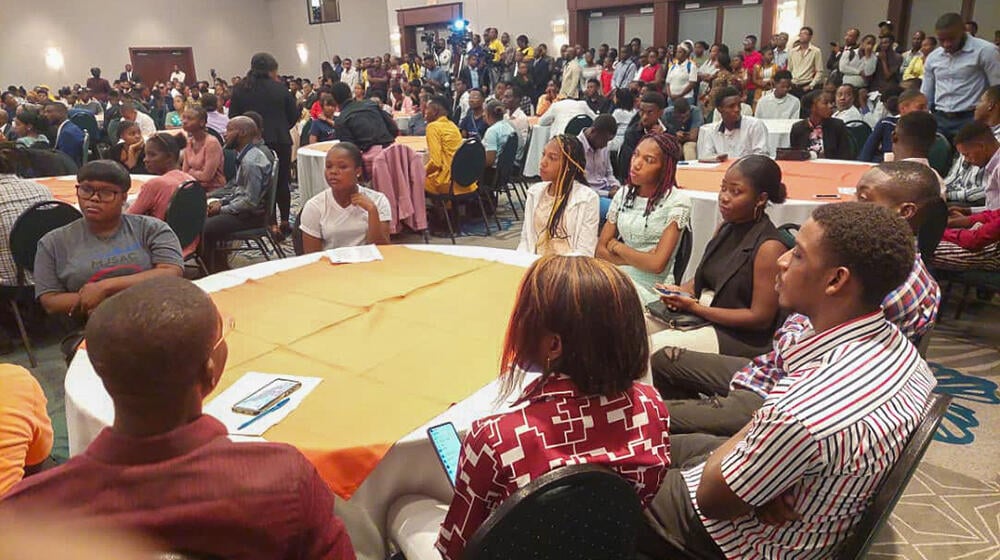Port-au-Prince, August 12, 2024 --- The Ministry of Youth, Sports and Civic Action (MJSAC), in partnership with the United Nations System in Haiti and other partners, celebrated International Youth Day around the national theme “Youth, Peace and Security”.
This commemoration was held in Pétion-Ville, east of Port-au-Prince, on Monday, August 12, 2024, in the presence of the Prime Minister, the United Nations System and several dozen young people.
For the Future of Young People
Prime Minister Garry Conille reaffirmed his commitment to placing the interests, present and future of young women and men in Haiti at the heart of all his decisions.
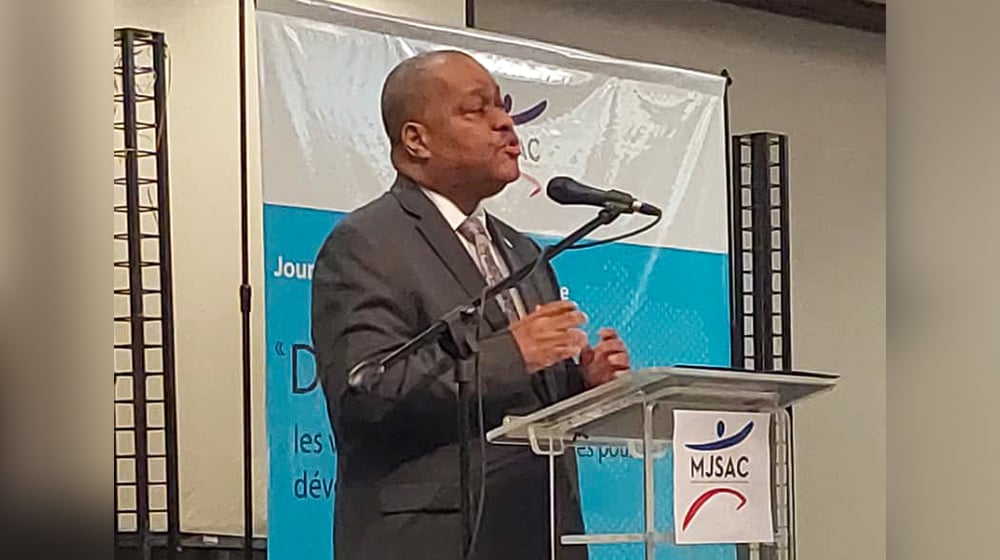
"In the midst of the mountain of uncertainty that the country is going through, Haitian youth, in its essence and in its quintessence, represents hope," he added.
An important component
In Haiti, people aged 15 to 24, young people, represent 19% of the general population. Those under 25 constitute 51% of the general population. The median age of the population is 23. Those under 18 represent 38% of the general population.
A significant portion of the population is therefore young. It represents the present and the future.
Agent of Change
Minister of Youth, Sports and Civic Action, Niola Lynn S. Devalis Octavius, is committed to sustainable development where every young person will be an agent of change.
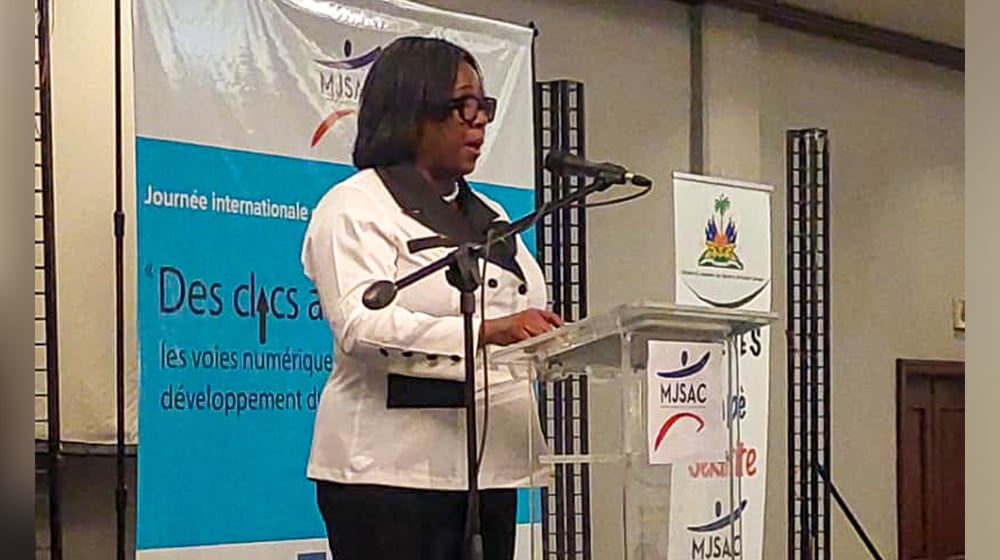
The Representative of the UN SRSG in Haiti, Sancho Coutinho, highlighted the importance of digital services for young people.
He stressed the importance of education and citizenship in the development of young people.
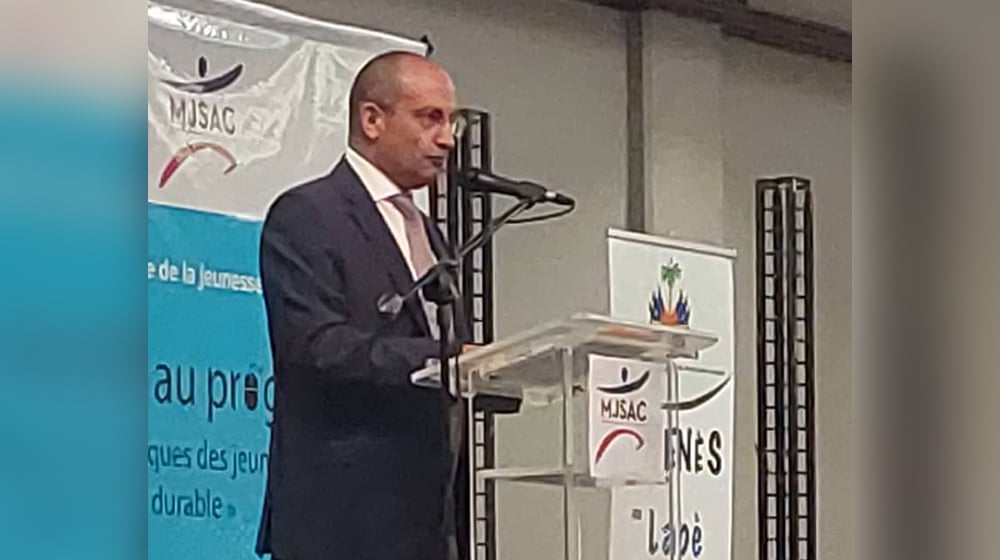
A little satisfaction
Young people have declared themselves satisfied with the training received within the framework of the Youth Social Support Program for Peace and Security during the month of celebration of the international day which ended on August 12.
These young people are often consulted by other young people for a replica of this training.
What about the Youth Support Program?
According to the MJSAC, approximately two hundred thousand young people participated in the Youth Support Program activities.
Five thousand young people were able to be trained in leadership and active citizenship.
No fewer than fifty youth and civic activities were organized in the country's 10 departments.
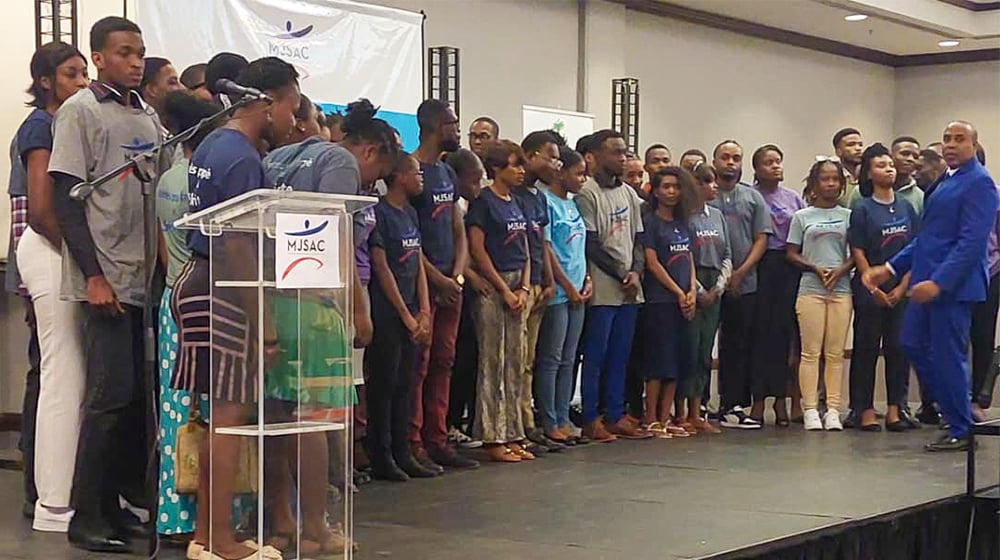
UNFPA and Youth
UNFPA's contributions in Haiti regarding youth are multiple.
We collaborated in the framework of the revision of the normative documents of the Ministry of Youth, Sports and Civic Action (national youth policy and inventory of adolescents and young people in particular).
With the Ministry’s School Health Directorate, we support health clubs in schools, in conjunction with FOSREF, following the model of the School Health Directorate of the Ministry of National Education and Vocational Training, with a view to integrating reproductive health. Through the Girl roster strategy, UNFPA has strengthened the capacities of vulnerable girls in sexual and reproductive health with a view to their empowerment.
With OJH, UNFPA has helped build the leadership capacities of young people. UNFPA helps build the capacities of young people, especially girls, through bodily autonomy using dance and learning other skills such as braiding, product processing and creating “their own business” (CHakadans).
We strengthen the capacity of local youth organizations in reproductive health.
We have helped make maternity wards more adolescent and youth friendly through girl-friendly spaces to facilitate dialogue between providers, especially midwives and adolescent girls, on reproductive health.
We are working with UNESCO in the framework of the revision of the MENFP curriculum for the integration of a reproductive health component, including sex education, in a progressive manner considering age and Haitian culture.
It is necessary to invest in comprehensive reproductive health education and empowerment programs to strengthen the skills of young leaders.
In connection with the global theme
The global theme of this international day: "From click to progress: young people's digital pathways for sustainable development".
It emphasizes the role of digital technology in achieving the Sustainable Development Goals (SDGs).
It’s about calling on young people to take leadership in promoting safe and inclusive digital spaces.
As a generation born into a digital world, young people know how to harness the vast opportunities offered by technology to build a more inclusive present and future.
But technological change is also widening digital divides and social inequalities. These gaps perpetuate long-standing ills like racism and misogyny, while putting young people, particularly adolescent girls, at increased risk of technology-facilitated gender-based violence.
Young people have the power to make our digital and physical world fairer, more equal, more peaceful and safer: this future is within reach.
Nearly a quarter of the world’s population is now between the ages of 10 and 24. The aspirations and achievements of this generation will determine the future of the planet.
Enabling policies
UNFPA works with partners (including civil society, communities and governments) to encourage the adoption of policies that are conducive to realizing the dividend. These policies include improving access to quality education and employment, and investing in young people’s health, particularly sexual and reproductive health.
Text and photos: Vario Sérant

